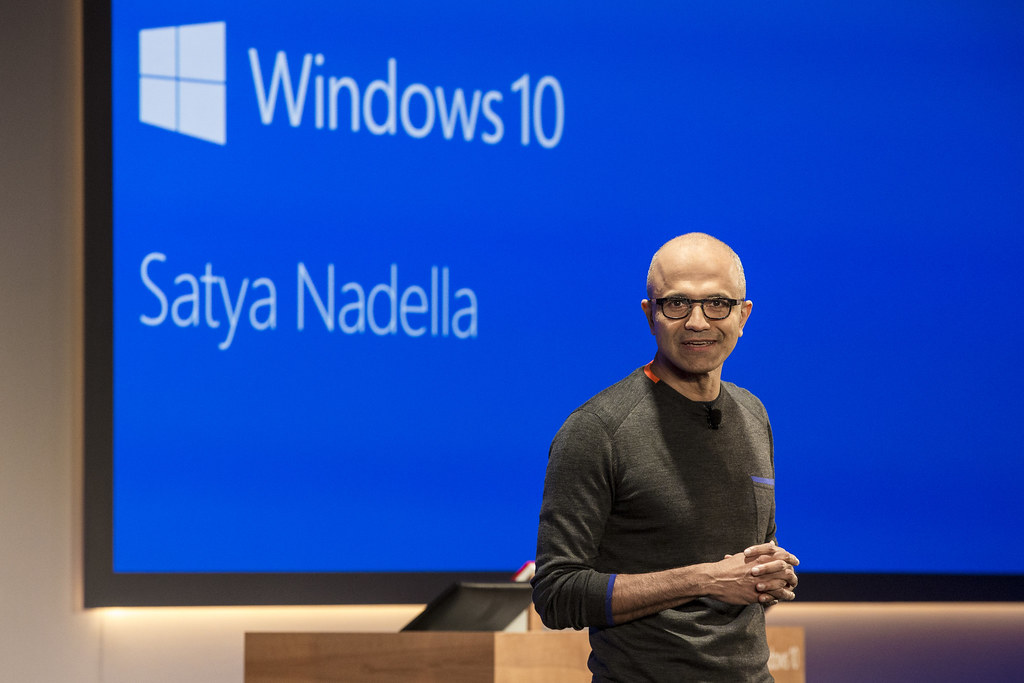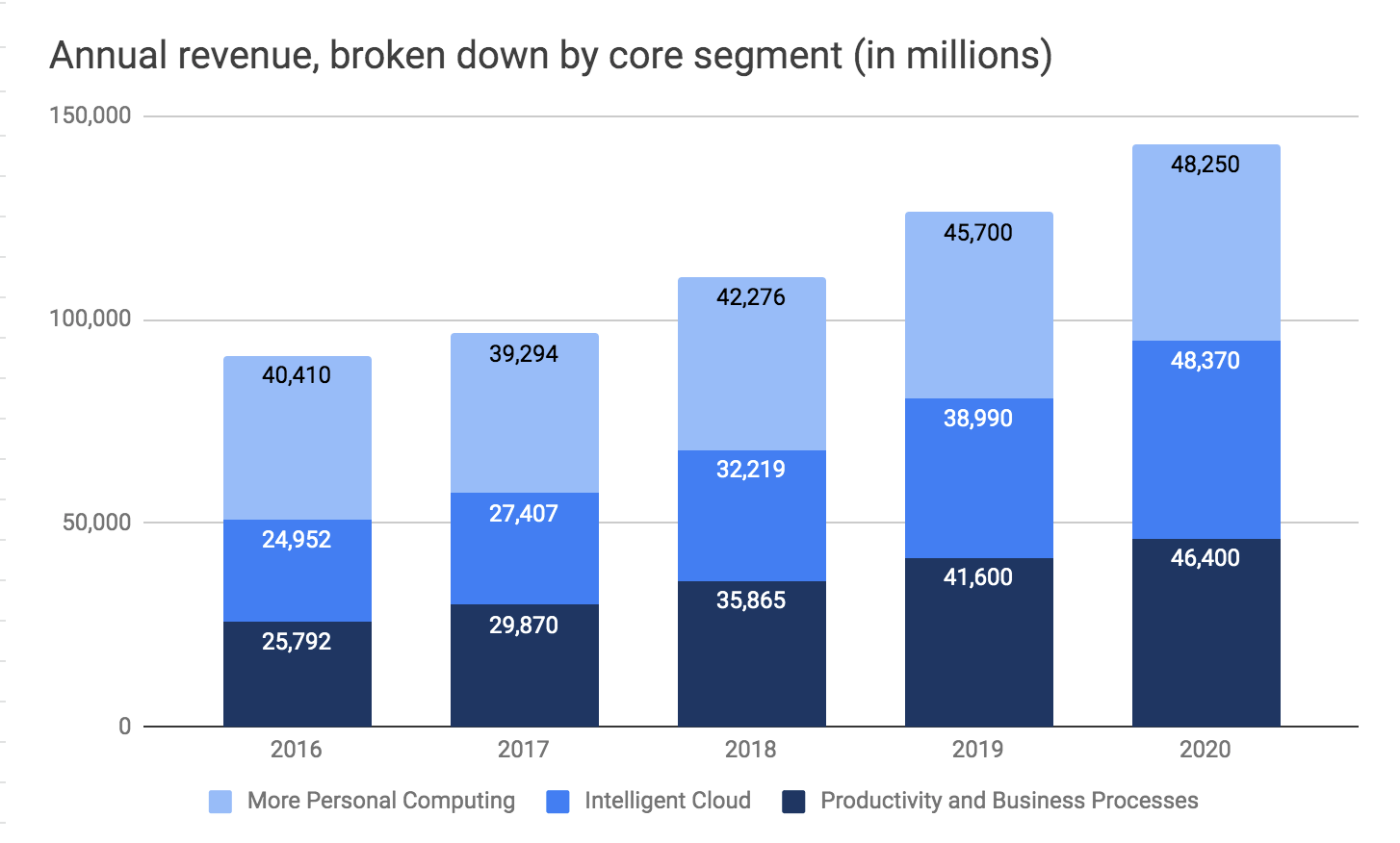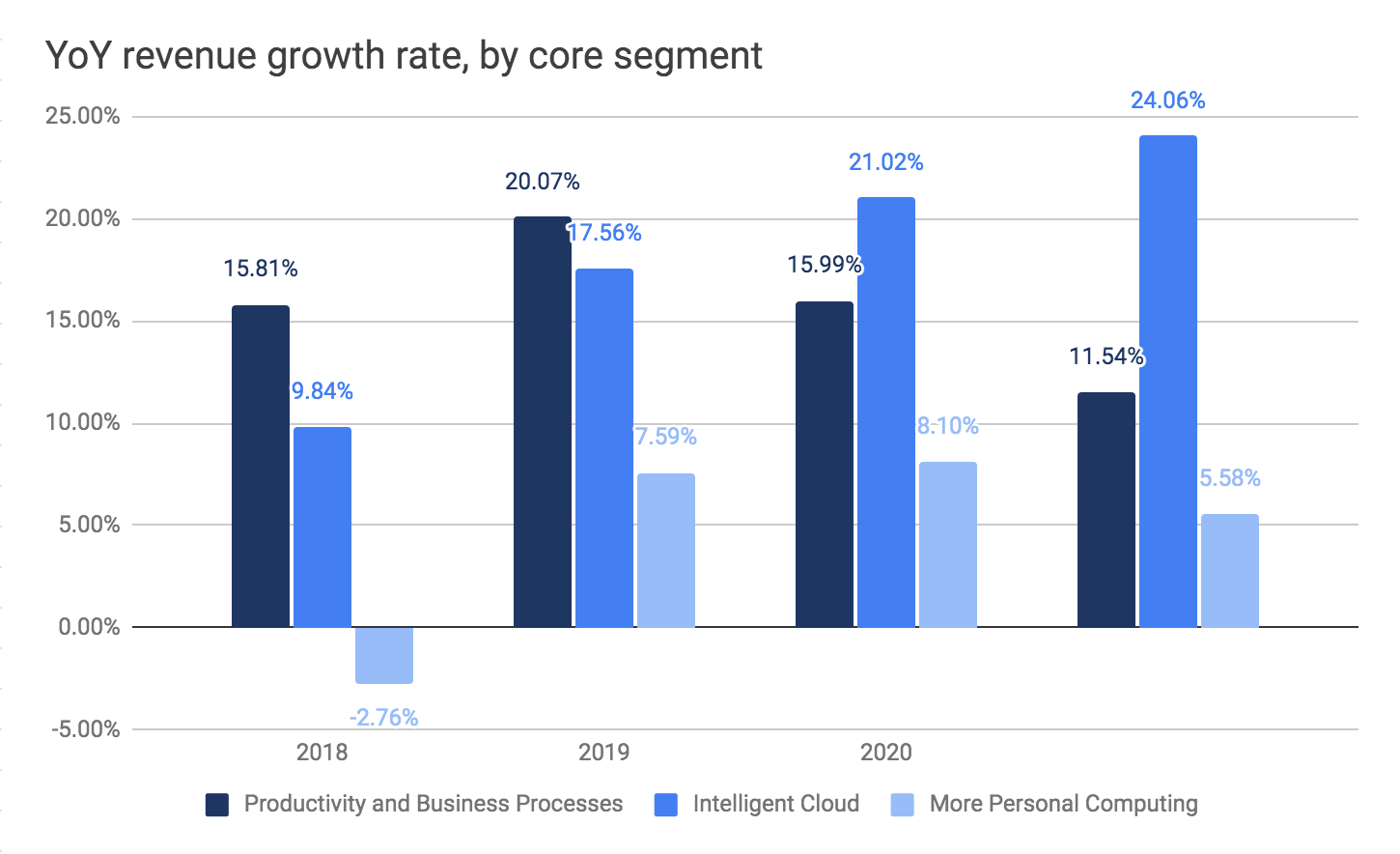Microsoft product management interviews
An overview of interview structure, sample questions and company culture
|
|
|
Interview structure | Sample questions | Video mock interview | Culture
Microsoft's renaissance is in full swing.
With Satya Nadella, the third CEO of Microsoft who was hand-picked by Bill Gates, at the helm the company has flourished. Morale is up, the company vision and product line is increasingly focused and market is taking notice - its stock nearly doubled since Satya took the reigns.
As a result, it's no surprise that product management roles at Microsoft are a hot commodity.

In this deep dive, we'll cover what to expect in the Microsoft product management interviews and how to prepare:
- The structure of Microsoft PM interviews
- Types of questions asked in Microsoft PM interviews
- Video mock interview with a Microsoft PM (Technical explainer question)
- Understanding Microsoft's core business and product culture
Structure of Microsoft interview process (Top)
As one of the largest major tech companies, with over 130,000 employees, Microsoft's product management interview process has more variance than that of its peer companies, like Google and Facebook.
That said, most Microsoft product management interviews follow a common structure: a quick phone screen, one first round interview and an on-site interview day with three to five interviews, depending on the team, the role and seniority.
Recruiter screen
Depending on how you apply, the recruiter screen could happen over a quick 30-minute phone call or an impromptu discussion at a career event (e.g., an on-campus career fair).
At this stage, the recruiter is assessing whether or not you've got the right background, have an interest in the Microsoft vision and could be a culture fit with the company.
"Sometimes the recruiter screen and 1st round are combined so be ready to answer a product or basic technology question during the screening also." - Milap Patel, Incoming PM Intern, Microsoft
First round interview
In first round interviews, Microsoft will typically try to get a broad assessment of your product sense and design skills, your level of technical fluency and knowledge about relevant Microsoft products.
Depending on your level and background, the nature of the technical questions could vary significantly (more on this below). For example, if you're applying out of undergrad and have technical background (e.g., CS degree), you could face prototypical software engineering questions about data structures, algorithms, etc.
Onsite interviews
Onsite interviews at Microsoft typically involve three to five, forty-five minute interviews.
Based on your experience level and background, Microsoft will match you up with one of the core organizational units and then your interviewers will likely come from different teams within that organization.
Before we jump into the specific types of questions covered, let's review the core organizational units at Microsoft.
Microsoft core organizational units
Currently, Microsoft is organized into a handful of core organizations:
- Cloud and AI: The Azure suite of cloud computing offerings that compete with AWS and Google Cloud
- Core services engineering: Includes a mix of groups from Microsoft Teams to Skype to supply chain optimization
- Office 365: The core Office group including product lines like Excel, Word and Powerpoint
- Experiences and devices: Includes devices like Microsoft Surface and Holo Lens and experiences like Windows
- AI and Research: Microsoft's R&D group, which places a big emphasis on AI
For example, if you were matched up to the core services engineering unit, you might have a interviews with people who across a variety of different teams like MS Teams, Skype and supply chain.
The unit you're interviewing with is important because it will influence the context around the questions you're asked (even though Microsoft will consistently test the same skills). For example, in the core services group, the product, analytics and technical questions you're asked might revolve around MS Teams (or other core services products).
Sample Microsoft PM interview questions (Top)
As discussed above, the context around the questions you're asked will vary depending on the organizational unit, but the types of skills tested will not. Primarily, Microsoft will focus on testing your product design skills, your analytical thinking skills, your technical fluency and cultural fit.
Sample product design questions
Here, Microsoft wants to understand how you think about products. Overall, they want to know if you can conceptualize a high level idea, articulate a clear strategy and think through the tactical steps needed to launch and/or build it.
In most cases, the questions will revolve around product challenges from the particular organization you're interviewing with.
- How would you improve Microsoft powerpoint?
- In what ways could Microsoft integrate LinkedIn into its core products?
- Imagine you're designing the mobile app for Microsoft Teams, how would you go about this?
Sample analytical questions
In this category, Microsoft wants to understand what type of analytical process you'll bring to bear on the problems you'll face on the job.
Often, the prompts will center around Microsoft products and force you to demonstrate how you'd rationally walk through a problem, step-by-step. More importantly than arriving at a specific number, Microsoft product managers will want to see that you have a logical approach and make reasonable assumptions.
- How would you size the market for Microsoft Teams?
- LinkedIn recently started offering native video. How much storage capacity will they need to store videos?
- The number of daily average users (DAU) for Office 365 is down 5.0% WoW. How would you investigate what's going on?
Sample technical questions
The nature of the technical questions can vary dramatically depending on the specific product manager role you're interviewing for.
For example, if you're interviewing with the AI and Research group, expect to get some questions probing your knowledge on machine learning and AI techniques, models and approaches. However, for many roles on more established products, Microsoft will focus on whether you have enough technical know-how to communicate with engineers and ship software products effectively.
- Describe what happens an Office 365 user shares a Word doc with another user from a technical standpoint?
- Design an algorithm to highlight relevant documents to a user on their Microsoft Word dashboard.
Got a MSFT interview?
"Rocketblocks PM course was of great help to me. It helped me hone my PM interview skills by helping me practice a lot of questions and providing great lessons using mini-tutorials." - Dhairyya Aggarwal, Incoming PM, Microsoft, CMU
Sample behavioral questions
Finally, Microsoft will probe on how you work and what results you've been able to achieve in the past. The type of questions asked here will be similar to those asked at peer companies like Google, Amazon, etc.
- Tell me about a time you failed and what you learned from it.
- How would you go about earning the trust of your development team? And sales team?
- What's the hardest you've worked in your life and what results did you achieve?
"Every interviewer asked me at least 2 behaviorals before jumping into product design or technical - make sure you know your resume well and have stories lined up. And definitely don’t lie because they’ll figure it out. Also, drive their mission/vision in all your answers (especially the behavioral to showcase you are a culture fit)." - Milap Patel, Incoming PM Intern, Microsoft
Understanding Microsoft's core business and product culture (Top)
When interviewing, it's also important to understand Microsoft's history and how that's led them to their current market position, product suite and strategic focus.
Microsoft's runaway success was the Windows operating system. Rather than focus on building hardware plus software, like Apple, Microsoft focused on building a killer operating system, licensing it out to hundreds of PCs makers to get scale and then attracting developers to build applications on top of Windows due to that scale. This worked exceedingly well and, occasionally, Microsoft picked off the most attractive app categories, and built and sold their own software to capture additional opportunity (this is how the Office Suite came about).
Eventually, two major computing shifts ended Microsoft's dominance: the rise of the internet and the smartphone. The former meant that increasingly the browser was operating system of note, as more and more applications and services could be handled via web apps. The smartphone moved a significant amount of computing to mobile devices and Apple and Google seized the lion's share of those markets. These two shifts led to Microsoft's lost decade where competitors like Google, Amazon, Apple and Facebook gained power at its expense.
For additional detail here, check out Ben Thompson's excellent post on The End of Windows and Microsoft's Monopoly Hangover.
Key business metrics
In the last five years, Satya Nadella has ended Microsoft's focus on windows and rebuilt the company around services. And the numbers, shown through the end of 2020 below, indicate he's been quite successful.
The three core layers that they focus (and report on) are: productivity and business processes (e.g., Office 365, Skype, Teams), intelligent cloud (e.g., Azure et al) and more personal computing (e.g., Windows and devices like Xbox, Hololens, Surface, etc.).


A few key observations from Microsoft's recent revenues:
- Intelligent cloud is a monster business! Its growth rate is accelerating, even though it already brings in over $40B annually in revenues. That's wild!
- One can see the lingering effect of Windows, as the personal computing is still nearly the biggest revenue category. However, it's growth is outpaced by the newer categories.
- The overall growth of the Microsoft business is very impressive, although there does seem to be a noticeable slowdown in growth rate for the productivity category over the last few years.
Microsoft's product culture
Microsoft is an elder statesman of the tech scene. And that's a good thing!
It's been through its startup phase, its high-growth phase, its everyone's anti-Microsoft phase and is now in it's renaissance phase. Importantly, this evolution has an impact on what type of candidates end up being successful at Microsoft.
As opposed to peer companies, who often use grandiose language about only hiring the best of the best, Microsoft humbly focuses on two core cultural signposts: 1) people who truly care about the Microsoft mission and product and 2) people with very high potential (versus a significant record of accomplishment already).
P.S. Are you preparing for PM interviews?
Real interview questions. Sample answers from PM leaders at Google, Amazon and Facebook. Plus study sheets on key concepts.
Sources



